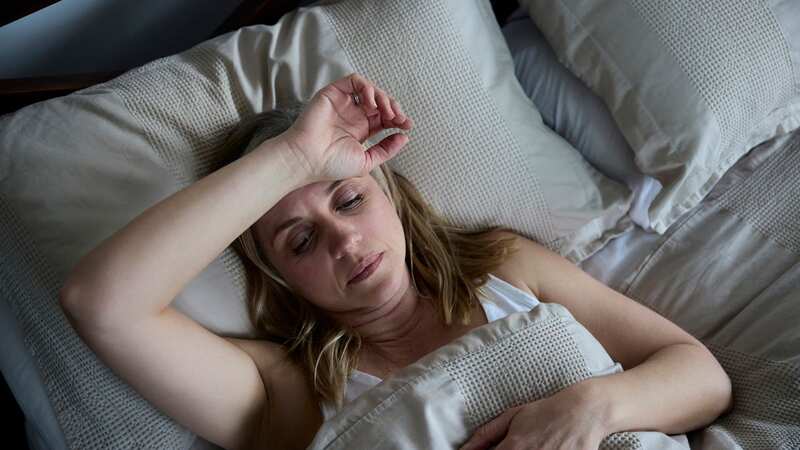Sleep expert explains three-night guide to resetting your body clock
A sleep expert has shared a three-night guide to reset your body clock.
Martin Seeley, CEO at MattressNextDay, says it only takes three nights of good sleep to recover from sleep deprivation. With World Sleep Day on Friday, March 15, now is the perfect time to fix your sleep routine.
Find out how you can bounce into work next week full of energy and without any eye bags. As well as doing the following activities, Martin suggests sleeping for eight hours each night.
Day one: Saturday
Do a 30-minute workout in the morning, reports Bristol Live. Exercise can help improve your sleep quality and how long you sleep. A healthy sleep cycle also means more strength and endurance when working out. Drink at least two litres of water today for an energy boost.
 Woman tells of losing 29 kilos and becoming a bodybuilder in her 60s
Woman tells of losing 29 kilos and becoming a bodybuilder in her 60s
Staying hydrated not only boosts your energy but also your metabolism. Even mild dehydration can make you feel sleepy and tired, and can affect your mood. Use lighting (or lack of it) to tell your brain about the different times of the day.
Light is the most important external factor affecting sleep as it plays a central role in regulating our body's internal clock, otherwise known as our circadian rhythm. This signals when to be alert and when to rest, so you should expose yourself to natural sunlight throughout the day.
Then when the sun starts to wind down on an afternoon, start dimming your lights so that by the time you get to bed, your bedroom is pitch black. If you're struggling to sleep, try this five-minute hack. Known as the Cognitive Shuffle, you should list random items in your head that are easy to visualise, non-threatening and not directly related ie potatoes, Tarzan, and a violin. This will tire your brain out and help keep your mind off issues preventing you from sleeping.
Day two: Sunday
As soon as you wake up, open your curtains. Being exposed to bright light signals your brain to stop producing the sleep hormone, melatonin, which makes you feel drowsy. Go for a walk to increase your vitamin D. Even just 10 minutes spent in the sun can boost your serotonin and stop you from feeling sleepy and sad. However, try and go for a walk that lasts as long as possible as the more you tire yourself out, the easier you'll find sleeping that night.
If you do need to nap, do it the right way. You should only nap for 10-20 minutes. If you sleep longer than half an hour, you might feel groggy because your body will have entered a deep sleep cycle. Also, it's important to time your nap correctly. You naturally feel less alert in the afternoon, so that's the best time to take a nap. But make sure it's more than 8 hours before you go to bed at night, otherwise, it could mess up your sleep.
Avoid drinking alcohol. If you're feeling down about going back to work on Monday, you might be tempted to have a drink. But it's best not to. Even though alcohol can make you feel sleepy, it actually lowers the quality of your sleep. Studies show that people who drink before bed often wake up during the night and feel tired the next day.
Day three: Monday
Eat breakfast to boost your energy. Research shows that what you eat can affect how well you sleep. So don't skip breakfast - it helps wake you up. Try to eat a balanced meal with plenty of protein and healthy fats to give you energy. For example, you could have eggs, lean meat or avocado. Don't drink coffee five hours before bed and limit yourself to two cups a day.
While caffeine can give you a quick energy boost, remember it takes about five hours to get rid of half the amount you've had. So, bear this in mind. Start a bedtime routine to lower your stress hormone. When you're feeling stressed, your body makes more of the stress hormone, cortisol. The more cortisol you have, the more awake you feel.
 Chelsea winners and losers from record transfer window as more changes to come
Chelsea winners and losers from record transfer window as more changes to come
That's why it's good to have a bedtime routine. This could be yoga, stretching, meditation, deep breathing, or a hot bath. All these things are known to help you relax. Listen to rain sounds for a better night's sleep.
The sound of steady rainfall can help your brain fall asleep. It's calming, regular, safe and can block out other noises. It's the perfect sound to help you drift off.
Read more similar news:
Comments:
comments powered by Disqus


































